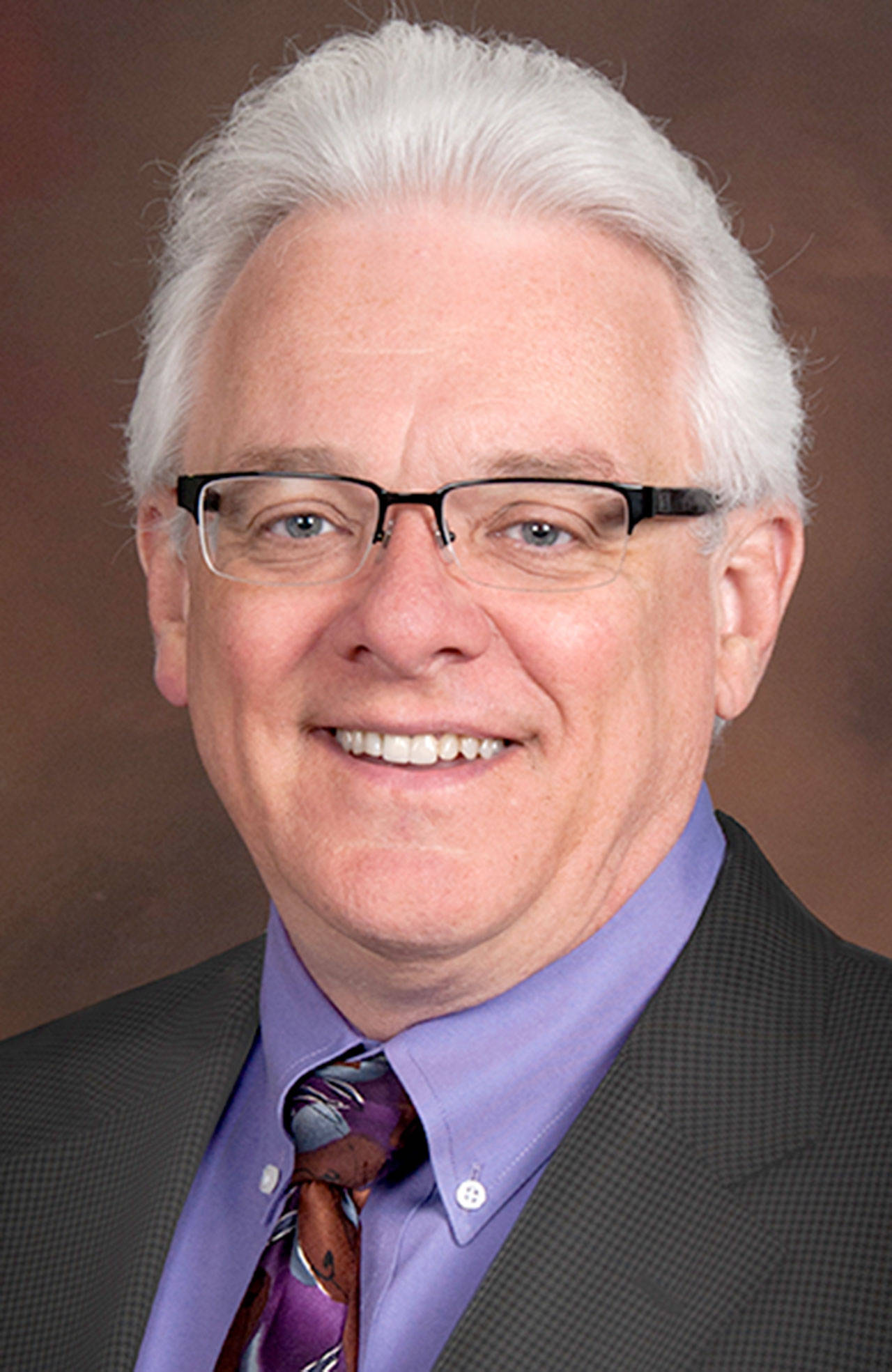By Luke Robins
Peninsula College President
As lawmakers once again gather in Olympia for the 2019 legislative session, they face a challenging task: writing the next two-year state budget, weighing many competing and important demands in the process.
We believe there is at least one thing on which we can all agree: people need good, living wage jobs, and most of those jobs require training and education beyond high school.
This is especially true here on the Olympic Peninsula, where our economic recovery continues to lag behind other regions in the state.
Across our region, our fellow citizens are concerned about their economic security: sustainable jobs, food and housing security, access to affordable health care, sending their children to college, and planning for retirement.
Our Legislature can help to address these concerns by making higher education funding a top priority this session.
According to the Washington Roundtable, there will be 740,000 job openings by 2021, and more than half will require education past high school.
At the same time, people need a range of pathways to those jobs, whether it’s an employer certificate, training in a trade, a two-year degree, a four-year degree, or an apprenticeship. A high school diploma is no longer an automatic ticket to a living wage job.
There are 34 community and technical colleges across the state, big and small, urban and rural. Whether students are 16 or 60, and whatever their background, we have quality academic, training and support programs to help them move forward.
Equally important, our colleges serve as the primary gateway to education past high school for students who are the first in their families to go to college.
Many of these students would never have attempted college without the community or technical college option to help them build skills and manage the cost.
Last year, the Legislature took steps to begin to fully fund the State Need Grant by 2023. We encourage the Legislature to continue this momentum so all students who qualify will receive state financial aid.
Community and technical colleges are also seeking investments in three other key areas for students: guided career pathways, training in high-demand careers and exceptional instruction.
The guided career pathways approach is a nationally-recognized way to help students graduate on time and with purpose, saving them time and money in the process. The idea is to help students choose a course of study earlier and streamline their path to a degree or certificate.
Students get clear road maps to get to their career goals, whether they want to go immediately into a career after graduating or continue on to a university for more study. Advisors work closely with students to identify their path, keep them on it, and help them graduate sooner.
Our students, and the employers who count on them, also need more access to training for jobs in high-demand fields that pay well and elevate our economy. These include jobs in aerospace, advanced manufacturing, health care, IT, cybersecurity, nursing, interactive media and myriad other positions with employers across the street and around the state.
With the help of state funding, Peninsula College created an aluminum welding course and expanded our allied health programs in response to community needs.
Our allied health programs help address the ongoing shortage of nurses, medical assistants, and nursing assistants in our area; similarly, a partnership between Peninsula College and Armstrong Marine Inc. is addressing a growing deficit of skilled workers in the marine trades.
We’re requesting enhanced funding to continue these kinds of workforce programs statewide.
Of course, none of this can happen without outstanding instruction. We need to attract and keep the exceptional faculty that bring lessons to life for our students. But to do this, we need the Legislature to provide competitive compensation. On average, community and technical college faculty in Washington are paid 12 percent less than faculty in peer states.
Good jobs are out there. On the Olympic Peninsula, the pathway to those jobs runs right through Peninsula College.
As Legislators tackle the next state budget, their focus should be on funding education beyond high school. Community and technical colleges and our four-year university partners create common ground — and a powerful public good – for the people of Washington State.
______
Luke Robins, who holds a doctorate, is the president of Peninsula College, which is based in Port Angeles with branches in Port Townsend and Forks. Contributing to the writing of this opinion are Dwayne Johnson, chairman of the Peninsula College Board of Trustees; and Tim Stokes, chair of the Washington Association of Community and Technical Colleges Legislative and Public Information Committee and president of South Puget Sound Community College.

